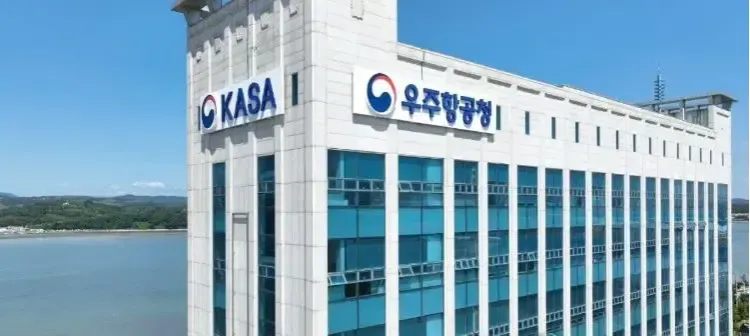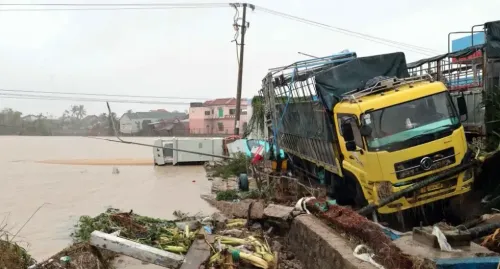S.Korea's KASA to Cultivate Space Economy and Innovate Technologies

Synopsis
Key Takeaways
- KASA to promote a private-led space economy.
- Focus on developing reusable rockets and advanced satellites.
- Aim to position South Korea among the top five global leaders in space.
- Launch of next-gen midsized satellite for research.
- Collaboration with NASA on SPHEREx space observatory.
Seoul, Jan 21 (NationPress) The Korea AeroSpace Administration (KASA), South Korea's national space agency, announced on Tuesday its commitment to promote a private-driven space economy and advance future aerospace technologies, including reusable rockets and cutting-edge satellites, throughout this year.
According to a collaborative policy report, KASA aims to enhance Seoul's position in the global space market, aspiring to place the nation among the top five worldwide leaders in this field, as reported by Yonhap news agency.
The agency plans to prioritize the development of technologies for space transportation, focusing on reusable rockets while supporting a private company in executing the fourth launch of Nuri, South Korea's indigenous space launch vehicle, expected in the last quarter.
KASA is targeting the creation of a reusable rocket capable of transporting 1 kilogram of cargo to space for just US$1,000 by mid-2030. Additionally, it intends to initiate research programs for an orbital transfer vehicle, manned spacecraft, and space reentry technologies.
This year, KASA also plans to launch a next-generation midsized satellite for space science research and a multipurpose satellite for monitoring the Korean Peninsula. Furthermore, it will work on developing enhanced satellite technologies, such as a low Earth orbit satellite communications system and the Korea Positioning System, South Korea's local satellite navigation system.
Moreover, the nation is set to launch SPHEREx, a space observatory created in collaboration with the U.S. National Aeronautics and Space Administration (NASA), next month. SPHEREx will be the first space observatory to conduct an all-sky spectral survey, collecting data on over 450 million galaxies within the Milky Way, according to NASA.
KASA will also initiate preparations for lunar exploration technologies aimed at establishing a lunar base by the 2040s and landing a spacecraft on Mars by 2045.
Plans are also underway for KASA to establish the world’s first space observatory at L4, one of the stable Lagrange points, which are regions in space where gravitational forces from celestial bodies like the sun and Earth create stable zones, allowing for efficient exploration missions with reduced fuel usage.
In the aviation sector, KASA aims to develop technologies for eco-friendly and highly efficient aircraft, as well as a domestically produced gas turbine engine.
Furthermore, KASA plans to strengthen collaborations with leading global space nations, including the United States, Europe, and Japan, while expanding its role in the NASA-led Artemis moon exploration initiative.









